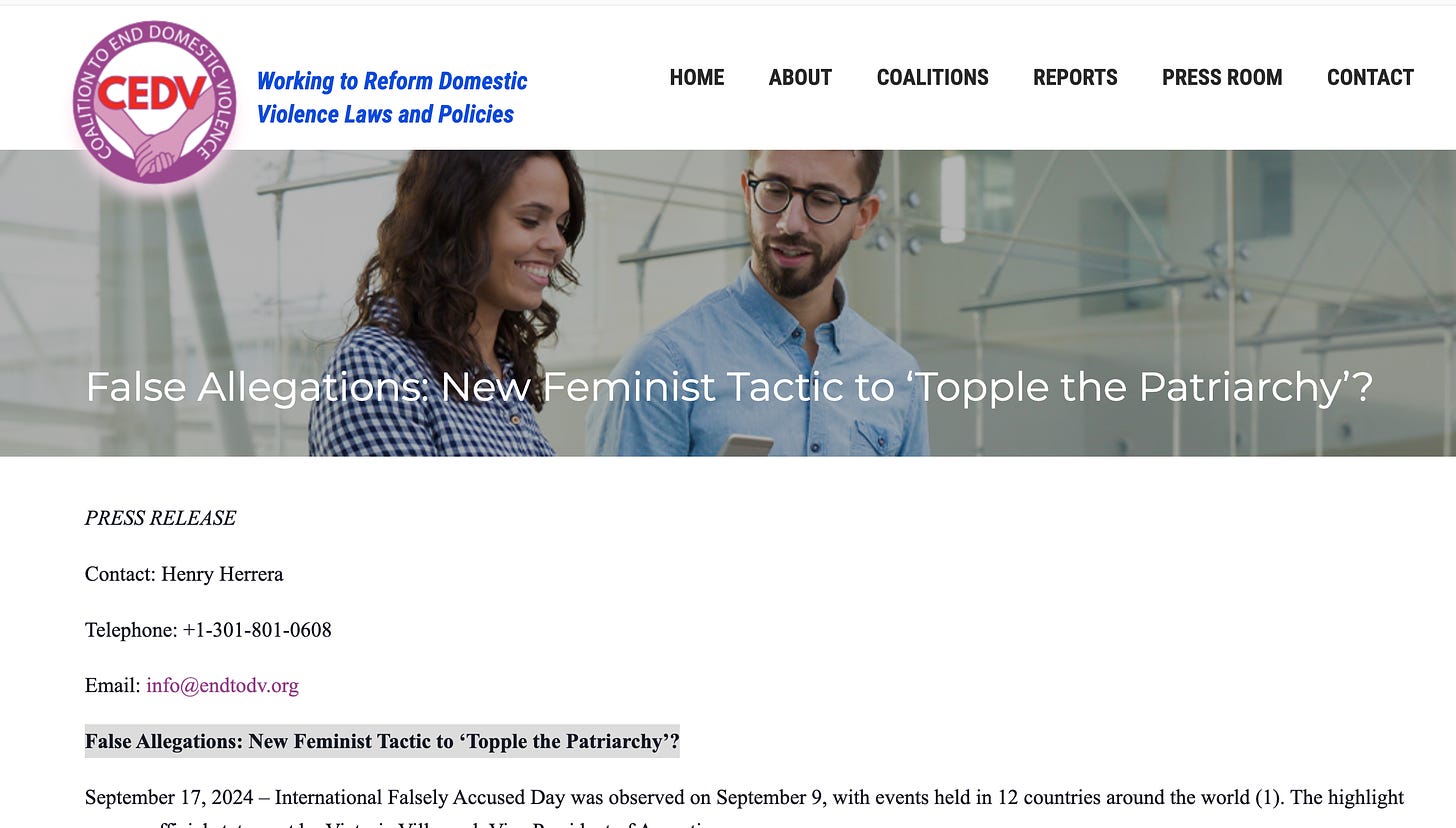This is a link to a DAVIA press release regarding false accusations. DAVIA puts out two or three press releases each week that are excellent and well documented summations of many of our issues. They are very much in harmony with our thoughts here on menaregood. You can see all of the releases here. This one (linked below) offers some suggestions at the end of the release that are guidelines for lawmakers to stop false accusations:
"To curb the epidemic of false allegations by vindictive women, lawmakers need to make these changes (11):
Renounce the use of so-called “believe the victim” and “trauma-informed” investigations, which bias the probe and remove the presumption of innocence.
Require hard evidence, not a mere accusation, as proof of abuse.
Increase penalties for false accusers."

https://endtodv.org/pr/false-allegations-new-feminist-tactic-to-topple-the-patriarchy/


















